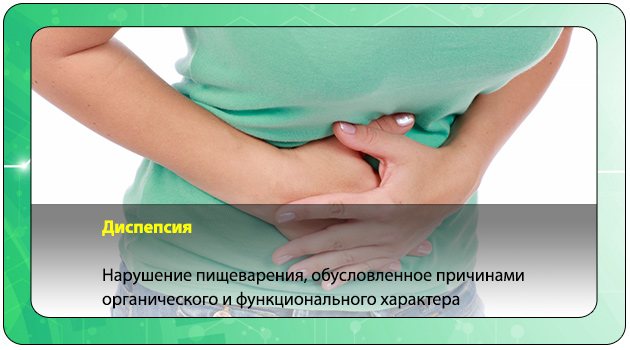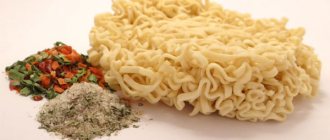Smecta helps with intestinal disorders. The product is a powder that must be diluted with water and drunk several times a day.
It is known that many medications are prohibited for use while breastfeeding. After all, the composition of the drug enters the baby’s body through milk. The medicine can greatly harm the child, cause poisoning and other negative reactions.
Smecta effectively copes with bloating, diarrhea and heartburn. If a nursing woman has a similar illness, then the question arises whether such medicine will harm the baby. The instructions for the drug state that the tablets can be taken during pregnancy and lactation.
Smecta only affects the body of a nursing woman and is harmless to babies due to its natural composition.
General characteristics of the drug
The preference of doctors is justified by the composition of the sorbent and its effect. The product is natural, has a minimum number of contraindications, and rarely causes side effects.
The instructions mention that taking Smecta is allowed both during breastfeeding and during pregnancy.

The active substance, dioctahedral smectite, is essentially a natural clay that is mined on the Mediterranean coast.
The medicine also contains:
- dextrose monohydrate;
- sodium saccharinate.
To give it a pleasant taste, manufacturers add vanilla or orange flavoring to Smecta.
At the pharmacy you can purchase a package of 10 or 30 pre-packaged powders. Possibly sold individually. The drug is white, sometimes with a yellow or gray tint.
Smecta has the following effects on the mother’s organs:

- Creates a soft film on the surface of the gastrointestinal tract that protects mucous membranes from the influence of toxins and pathogens.
- Increases the efficiency of the gastrointestinal tract.
- Normalizes the process of gas formation.
- Absorbs toxic substances, as well as waste products of bacteria and viruses, and removes them along with feces.
- Reduces the urge to vomit.
- Quickly eliminates diarrhea.
At the same time, Smecta does not destroy the beneficial intestinal microflora. On the contrary, with its help you can restore the vitamin-mineral complex.
The selective action and almost complete safety of Smecta make the drug approved for breastfeeding. But it is advisable to take the sorbent under the supervision of a doctor, who will take into account the peculiarities of the course of the disease and adjust the dosage.
Indications for use
The medicine is prescribed if the mother has the following pathologies:

- Acute or prolonged diarrhea.
- Bloating.
- Heartburn.
- Ulcerative formations in the stomach or duodenum.
- Food poisoning.
- Dyspepsia accompanied by pain.
- Infectious processes.
- Allergic reactions.
Sometimes taking Smecta provokes side effects:
- Nausea appears and vomiting develops.
- A rash appears and the skin itches.
- There is a delay in fecal excretion.

In this case, it is necessary to consult a doctor, adjust the dose of the drug, or replace Smecta with another sorbent.
Contraindications
Use is prohibited in the following conditions:
- hypersensitivity to ingredients;
- fructose intolerance;
- intestinal obstruction;
- enzyme deficiency.
Smecta is prescribed with caution for diabetes mellitus.
Cannot be taken simultaneously with other medications. The sorbent effectively binds their components and removes them from the body. As a result, the medications will not have the desired therapeutic effect. A 2 hour interval must be maintained.
Smecta during breastfeeding – Health Center
01.04.2020
Smecta helps with intestinal disorders. The product is a powder that must be diluted with water and drunk several times a day.
It is known that many medications are prohibited for use while breastfeeding. After all, the composition of the drug enters the baby’s body through milk. The medicine can greatly harm the child, cause poisoning and other negative reactions.
Smecta effectively copes with bloating, diarrhea and heartburn. If a nursing woman has a similar illness, then the question arises whether such medicine will harm the baby. The instructions for the drug state that the tablets can be taken during pregnancy and lactation.
Smecta only affects the body of a nursing woman and is harmless to babies due to its natural composition.
Helper for intestinal disorders
The composition of the drug includes diosmectite. The natural component stabilizes digestion, prevents organ damage and soothes the irritated intestinal mucosa. In addition, the drug will remove gases and protect the body from bacteria and viruses.
A nursing mother can take Smecta if she has:
- bloating;
- gastritis;
- heartburn;
- diarrhea;
- intestinal colic;
- intestinal infection;
- diarrhea.
Natural origin allows the product to be used by mothers who are breastfeeding and newborns. It is important that the drug acts only on the stomach and intestines. It is not absorbed into the blood, and therefore does not pass into breast milk!
In addition, Smecta does not cause allergies. But remember, before taking any medicine, even the safest one, be sure to consult your doctor!
Compound
| Substance | in one bag |
| Dioctahedral smectite (diosmectite) | 3 grams |
| Glucose | 0.749 grams |
| Sugar sodium | 0.007 grams |
| Vanillin | 0.004 grams |
Use during lactation
Since the drug is compatible with breastfeeding, dosage does not require adjustment. A nursing mother should drink three sachets daily for three days; on the fourth and fifth days, drink two and one sachet, respectively. For acute diarrhea, it is recommended to drink 6 sachets in the first three days.
Dissolve the powder of one sachet in 100 ml of warm water.
If there is no improvement within three days after taking the drug, consult a specialist immediately!
Although the medicine does not reach the milk, as a precaution, drink the medicine immediately after feeding. It is recommended to drink the powder an hour before meals or an hour after meals.
If any side effects occur, stop taking your medications immediately! The main side effect is constipation. Constipation occurs only with an overdose of the drug. Therefore, keep your intake in moderation! In rare cases, Smecta causes itching, hives, or a rash. The reaction occurs immediately after stopping the intake of the powder.
A nursing mother should not drink Smecta if she has fructose intolerance and hypersensitivity, intestinal obstruction and enzyme deficiency.
The solution will quickly improve the functioning of the intestines and relieve pain and discomfort in the stomach. Moreover, it is safe during lactation. However, remember the dosage! Take medication while breastfeeding under the supervision of a doctor.
By the way, Diosmectite is a cheap analogue of Smecta. This is a component of the drug, which is also a powder for oral administration. It relieves intestinal disorders, including bloating and diarrhea, diarrhea and heartburn, colic and gastritis.
If Smecta costs about 160 rubles, the price of Diosmectite is about 90. The natural remedy is safe for nursing mothers and babies. You need to drink three sachets per day for 3-5 days.
Source:
Can a nursing mother drink Smecta: instructions for use
18.09.2018 | 4300
Hormonal changes, stress, changes in taste preferences are common phenomena after childbirth, against the background of which the functioning of the gastrointestinal tract is disrupted. Due to a weakened immune system, it is difficult for the body to cope with the symptoms and causes of pathologies, so drug therapy cannot be avoided.
The problem in treatment is the baby’s sensitivity to the composition of the drugs. About 67% of medications are prohibited during pregnancy and lactation, but Smecta during breastfeeding (BF) is recognized as a safe and effective remedy.
Composition and effect of the drug
The product is recommended as a concentrated adsorbent of natural origin. Envelops and protects the walls of the digestive tract from the action of pathogens. The composition penetrates the mucous tissue, forms an obstacle to the membranes, absorbs microbes with an adsorbent, and removes them from the body with feces.
Table 1 - Components included in the drug
Substance: in 1 package, g:
| dioctahedral smectite (main) | 3 |
| flavor additive | 0.1 |
| xanthan | 0.03 |
| vitamin C | 0.01 |
| food additive E-330 | 0.02 |
| potassium salt of sorbic acid | 0.01 |
| trichlorogalactosucrose | 0.00375 |
There are 10 grams of powder in one package, 12 pieces in a cardboard package, available in orange and vanilla flavors. The bulk mixture dissolves in water to a light yellow suspension. The main active ingredient in the composition is diosmectite. A substance of natural origin (a mixture of aluminum and magnesium) that has a stabilizing, enveloping, protective effect on the mucous membranes.
The safe ratio of organic components allows you to drink Smecta during lactation and prescribe the drug to babies.
In what cases should I take it?
The medicine is used in the complex treatment of gastrointestinal disorders accompanied by pain, colic, and spasms. Smecta is one of the few powders allowed for mothers while breastfeeding. The powder is prescribed even to infants with digestive disorders.
Indications:
- Diarrhea of bacterial, infectious origin.
- Gastroenteritis.
- Dyspepsia.
- Dysentery.
- Colitis (allergic, nutritional).
- Heartburn, belching.
- Flatulence, bloating, tympanitis.
- Dysbacteriosis (including after antibiotics).
- Intoxication (medicines, food, alcohol, drugs, poisons).
Smecta is also prescribed for mothers with functional diarrhea: the diagnosis accompanies 12% of women after late childbirth (over 35 years old). Often signs appear after surgery or severe stress. The disorder is characterized by increased frequency of bowel movements up to 3-4 times a day without pain symptoms.
Use during breastfeeding: is it possible or not?
Smecta is absorbed in the blood and does not pass into breast milk. It acts directly on the gastrointestinal tract and is excreted unchanged from the body. If the instructions are followed, the use of the suspension is harmless to a nursing mother and baby. An important rule is the dosage and ratio of powder and liquid.
Directions for use and dose
- For acute symptoms – 5-6 packets per day.
- Weak, moderate severity - 3-4 packets.
- The course of treatment for hepatitis B is 3-7 days, until the symptoms are suppressed.
- Dissolve: 1 packet per 100 ml of water, drink in 3 doses.
- Take 1.5 hours after eating (with the exception of heartburn, immediately after eating).
- The interval between doses is at least two hours.
- The maximum daily dose is 6 packets.
The drug consists of organic components that do not affect the quality of milk.
However, not a single case of an allergic reaction of an infant to the powder has been recorded.
Smecta is also recommended for nursing mothers for preventive purposes, to improve digestive function after childbirth. The maximum course of treatment is 1 week; if the signs of pathology are not eliminated, a second consultation with a gastroenterologist is required.
Contraindications
Side effects are possible if instructions are not followed and contraindications are ignored. Risk of consequences
Source:
Taking Smecta during breastfeeding
The intestines can cause problems not only for the baby, but also for the mother.
What to do if you experience intestinal pain, diarrhea and bloating? Can Smecta be used while breastfeeding? We will deal with this in this article.
Properties of Smecta
Smecta contains diosmectite. It is a natural component that improves digestion and soothes irritable bowels.
- Smecta will provide a therapeutic effect to a nursing mother with diarrhea, due to its rapid enveloping effect;
- Small particles of the substance attract toxins and facilitate intestinal function;
- You can take it during lactation, even at the first manifestations of loose stools, and it does not matter why it occurred. This could be an allergic reaction, food poisoning, or even infectious diseases;
article Diarrhea in a nursing mother>>>.
Important! Smecta is indicated for use by a nursing mother for heartburn only if it is impossible to use other means that are aimed at neutralizing this particular problem.
- In addition, Smecta is recommended for nursing mothers with bloating. It absorbs toxins, bacteria and viruses and does not enter the blood;
- The drug helps remove gases and metabolic end products, while restoring favorable microflora in the intestines and increasing its resistance to the negative influence of aggressive factors.
Thus, Smecta is indicated for a nursing mother if you are concerned about:
- colic;
- heartburn;
- bloating;
- diarrhea;
- gastritis;
- intestinal infection.
If a child has colic, this drug will not help, since the causes of colic are caused by other factors. For information on how to help your baby with colic, see the course Soft tummy>>>
Use of Smecta during lactation
Before using the drug, you must read the instructions in detail.
- It notes that Smecta is allowed to be used during lactation. After all, it contains only natural ingredients;
- Therefore, neither pregnant women nor women during lactation require special dosage adjustments when using Smecta.
- Due to the fact that the drug does not pass into breast milk during lactation, it is perfectly compatible with breastfeeding;
- Nursing mothers need to follow the exact dosage when taking this medicine.
- You should take three sachets every day for three days;
- On the fourth day, drink two sachets, and on the fifth - only one;
- For acute diarrhea, it is allowed to drink 6 sachets in the first three days, even during lactation.
- Before use, the powder is diluted in warm water: 1 sachet per 0.5 cup of water;
- It is recommended to drink the product during lactation one hour before meals;
- You can also take it an hour after eating;
- Between two doses of this drug you need to take a two-hour break, no less.
Know! In case of poisoning, you are allowed to drink no more than six sachets of the drug per day.
The duration of treatment is influenced by the individual characteristics of mothers during lactation. In general, it should not last more than seven days.
Contraindications to taking the drug and side effects
When using Smecta during lactation, you need to know that this is one of the few drugs that has virtually no contraindications. But there are some limitations to its reception:
- fructose intolerance;
- disaccharide intolerance;
- impaired absorption of simple carbohydrates in the intestine;
- intestinal obstruction;
- chronic constipation.
Taking Smecta under such pathological conditions, as well as an overdose of it, can lead to increased constipation due to weakened intestinal motility.
Important! You also need to pay attention to the fact that the product may contain flavorings. If a person may have an allergic reaction to them, then it makes sense to refrain from taking Smecta, as well as if other side effects occur.
It should also be noted that if within three days after using the drug there is no improvement in your well-being, you urgently need to consult a specialist.
Attention! Extremely rarely, but still, Smecta can cause itching, hives and rash. Once you stop using the drug, the reaction goes away immediately.
So, answering the question whether Smecta can be used while breastfeeding, you should give a positive answer.
Source:
Can a mother drink smecta while breastfeeding her baby?
In the postpartum period, a woman’s immunity becomes weakened, which causes the body’s susceptibility to infections, including intestinal ones, to increase. In addition, breastfeeding involves many prohibitions on food and almost all medications.
Source: https://chinamednsk.ru/allergiya/smekta-pri-kormlenii-grudyu.html
Can a nursing woman take Smecta?
This sorbent is not absorbed by the mucous membranes of the digestive tract and does not enter the bloodstream; it is excreted unchanged. Therefore, there is no likelihood of its presence in milk.
However, you need to adhere to some recommendations for use:
- Smecta during lactation is taken immediately after feeding.
- It is advisable for the mother to drink the powder between meals.

In case of allergy to components, constipation or other side effects, inform your doctor. Such signs disappear after stopping the medication.
Compatibility with lactation
Smecta for breastfeeding is approved by pediatricians. The drug is often used in the treatment of a newborn child suffering from intestinal disorders. Therefore, a woman can safely breastfeed her baby without fear of a negative impact on the fragile body.
Dosage
The instructions clearly state the norms of the drug, including during breastfeeding. As a rule, adhere to the volume recommended for general indications:

- During breastfeeding, you are allowed to drink 3 powders for 1-3 days.
- On the fourth day the quantity is reduced to 2 packets.
- For fifths they use one.
- If acute diarrhea is diagnosed, according to the doctor’s decision, take up to 6 pieces per 24 hours. But you should not resort to such a measure on your own, since the risks of overdose and development of constipation are high.
Stir the powder in 100 ml of warm boiled water. Pre-packing is thoroughly kneaded with fingers to break up lumps.
Use the suspension orally immediately after preparation. The medicine cannot be stored.
Smecta during breastfeeding
May 20, 01:23
Not all that glitters is gold, or which medications are still compatible with breastfeeding (according to WHO and others)
I think it’s no secret that for most pharmaceutical companies, conducting studies on the compatibility of a particular drug with hepatitis B is an expensive pleasure. And since they need to write something in the instructions, they write - incompatible.
They are playing it safe, so to speak. However, organizations such as WHO conduct these studies and have their own list of permitted drugs during lactation.
Here is a list of some widely used medications, honestly copied from here: Continue reading →
poisoning
Here on you, on top of everything else, I was poisoned! I was just throwing up all night. Now I’m thinking, is it worth breastfeeding the baby? I’m afraid that some kind of nasty thing will be passed on to her. I didn’t feed at night, I missed 3 feedings, and so far everything is good. I only drank activated charcoal, which was already out, and now I just took a smecta, because I’m also diarrhea Read more →
Lactose intolerance
Good day to all! Girls, we are faced with such a problem ((we are 3 weeks old. Since birth he has pooped very often, for example yesterday 15 times! The feces are liquid, with mucus, lumps and greens. We are on breastfeeding. During and after feeding he behaves very restlessly. He spits up often.
Gaziki. Sleep is also bad. It’s clear that his tummy hurts ((Our local pediatrician prescribed espumizan and said colic. But there was no improvement. Every day my son suffered more and more. Yesterday we went to a paid pediatrician, and there we were...
Continue reading →
What we suffered from and how we were treated. 5 days – 1.5 months
Colic: for colic, take Espumisan L 25 drops (1ml) or Bebicalm 10 drops during feeding. For colic, Befidobacterin 5 doses 2 times a day and Lactazar 1 capsule at each feeding, this was mixed with expressed milk and given through a syringe.
The doctor prescribed taking it for up to 3 months. Acne: it’s not a disease, it’s just hormones coming out, it doesn’t require treatment, but I want to be beautiful. Therefore, make lotions with bay leaves (6-8 pieces per glass of boiling water) every 1.5-2 hours and lubricate with baneocin ointment 3 times a day. Bye…
Continue reading →
Teeth, loss of appetite, tantrums
I am writing for myself, for memory and for experience for the future. Our teeth are very difficult for us, the 4th teethed with a high fever (38.6 for two days) and severe diarrhea (7-10 times a day), while nothing helped, neither antipyretic nor enterofuril with smecta.
The best thing is to drink regularly, preferably chamomile tea. When the 5th tooth began to appear, all my successes in introducing complementary foods into the child’s diet were thrown down the drain, Miroslava stopped eating porridge, instead of 120g she began to eat at best...
Continue reading →
Diarrhea in a child
Our daughter is one month old. In my opinion, we have diarrhea for quite a long time. After being discharged from the maternity hospital, everything was normal, but 10 days after giving birth I was admitted to the hospital and the child had to be transferred to an IV.
After the mixture, she had problems with stool (constipation), they prescribed Microlax, everything returned to normal. After 10 days in the hospital (I was given antibiotics), I started breastfeeding. There wasn’t enough milk, we periodically supplemented with formula, and that’s when the diarrhea started.
Now enough time has passed, and the diarrhea has not… Continue reading →
Medicines while breastfeeding
Most of these medications do pass into breast milk, so they should be used with caution while breastfeeding (i.e., strictly according to indications, not exceeding the dose and monitoring the baby's condition). Taking most medications is not recommended while breastfeeding.
This is primarily due to the lack of relevant research. There is a small list of studied medications that can be used while breastfeeding. In case of a pronounced negative effect on the child’s body, the medicine is considered contraindicated during breastfeeding.
How does the medicine affect the child’s body? The degree of adverse… Read more →
A sharp transition from guards to IVs. (for a while)
I really don’t want to give the baby formula, but the doctor advises... Help with advice!!!(((((( Read more →
Dysbacteriosis or Allergy in a child at 5 months
During the 5 months of my baby’s life, she did not eat normally at all. Cries at my chest all the time. Gas trucks are tormenting. We took tests: caprogram, dysbacteriosis, carbohydrates.
Carbohydrates 1.2 when the norm is up to 0.25, hidden blood in the stool (an allergic reaction to both the food that I eat and the supplementary formula), Klebsiella 108 and Staphylococcus aureus 103. In short, horror. Endless consultations with pediatricians and gastroenterologists. Paid and free. But there is no result.
As a result, we were told to supplement our diet with an amino acid mixture, complete hydrolyzate, we... Read more →
This is tough...or 3 sleepless nights.
Damn it, I'm a zombie! I want to sleep. My child doesn’t sleep, he spends 3 hours at night in total, and can sleep all day long... all 3 nights we go to the alley, at exactly 3 o’clock, it’s frosty there, it’s good...
She only sleeps there, and if she’s lucky, she’ll continue sleeping at home, today she was unlucky and she only fell asleep at about 6 o’clock on the tit. GW definitely saves. The kid also loves to play and smile; we played for half the sleepless time, it’s tough. Our dad is also a zombie, because...
Only he has rocking arms, my chaise longue… Read more →
At sea with a 2-3 month old baby. Detailed tips
Good afternoon everyone. Our long-awaited vacation is approaching, and I thought it was time to start preparing (find out everything and buy the necessary things). We are flying to the seaside in Montenegro, the first half of August. We are on GW.
I have a lot of questions, I’m waiting for detailed instructions from everyone (and preferably also from those who have already traveled with such kids). So, point by point: 1) Airplane.
How to behave at the airport, when to return the stroller, what to take on the plane, what to do during takeoff/landing and the flight itself. It’s better to come in at the beginning or… Read more →
Colic
So, since the second week we have had stomach problems. Fear, irritation and pity. Now about the actions. 1) Call a pediatrician at home from IMMA and receive the following prescription: espumizan 3 r per day plus smecta 3 r per day for only 5-7 days.
Eliminate the Finn Crips rye bread I devoured from my diet. I decided to start with espumizan without smecta in order to see the effect of the drug. The effect at first seemed zero. Take at night and in the morning. The stool has changed - green spots have appeared. I was scared. I quit espumisan.
I started giving smecta… Read more →
Intestinal infection
We caught an intestinal infection, it turns out at sea (((We are 5 months old. Completely on breastfeeding. We were on holiday in Crimea. The day before yesterday we left Crimea at night and yesterday morning we stopped in Bataysk (near Rostov) In the morning everything was fine, I had a normal stool. Closer it started around lunchtime...
First, periodic diarrhea - 4 times yesterday, about 2 o'clock in the afternoon I completely vomited everything I ate. We went to a paid medical center. The pediatrician was not there, but the pediatrician advised us over the phone - she told us to drink enterofuril, smecta...
Continue reading →
Our everyday life
The baby always asks to be held and cannot sleep in the bed at all. He sleeps either on my chest if I'm sitting/standing, or on my stomach if I'm lying down. And so all day long I do it with one hand.
I hug the baby with my left hand, stroke it with my right hand, cook, clean, and here I am writing) At night he sleeps on me the same way, but I can’t sleep at all, I’m afraid I’ll turn around inadvertently and the baby will fall. and during the day, no one canceled household chores.
Murad went to the garden today, there was absolute silence at home... only I really miss him... Read more →
Poisoning due to hepatitis B
I decided to take the vitamins that I took during pregnancy Vitrum Prenatal Forte, I tolerated it during pregnancy normally, only the stool was black, after birth I decided to take it again because I was on a strict diet, I was afraid that I wasn’t getting enough vitamins for my baby, who was almost 4 months old, went to bed in the afternoon and woke up with a terrible headache. I fed him, then ran to the toilet, I started vomiting so much, first with bitter bile, then with black vitrum, and this hellish taste of iron in my mouth (ugh, I’ll never forget) I vomited throughout... Read more →
5 months first supplementary feeding
We started supplementing with dairy-free buckwheat porridge. Over the course of a week I gave her a spoonful once a day, and so she got up to 40 grams of food, and she liked everything. We are on GW. Girl's question: who gave milk porridge during supplementary feeding?! Our pediatrician advised us to start with dairy-free milk.
And how many times a day can you supplement? How are you doing? And what kind of chair? Ours has changed a lot. Poops after almost every feeding. I slept, ate, walked, slept, pooped. Then again I ate, walked, slept, and galloped. Started in the middle of the night...
Continue reading →
What's wrong with the child? Girls help
Of course, it’s better to ask a doctor such questions, but doctors in my city can’t really explain anything, and we’ll only get to another city next week. We have several problems at once, maybe someone else had these or all of them at once. We are 1 month and 1 week old.
The first and most important. Zheltushka. In the maternity hospital we were yellow as long as I remember her. But the bilirubin was only 60, they kept us under a lamp, did a screening, this is a special device used to measure jaundice on the skin and were discharged safely home...
Continue reading →
about everything….
After today’s appointment at the clinic, I’m all in thought... We gained little weight, only 450g (the eldest gained 1300g per month) I came to the conclusion that we don’t eat enough, I start supplementing every day. There’s not enough milk, no matter how hard I try. I’m excluding one breastfeeding .
Height 53 cm, at birth 54!!!!!!ms said a common occurrence! But I myself and from the things that are small see that they have gained at least 3 cm. The jaundice is still there, tomorrow we will go for analysis. I am very worried ((Treatment (Dinolak 0.5 chl 3r 7d, smecta 5 days 0.
5 packs-50ml of water 5 days, Essentiale Forte N 1 capsule per day, 10 days) finished. Regarding… Read more →
Hospital. Day 3.
Yesterday Slava's diarrhea got worse. I think it's because of the antibiotics. And we received a dose of smecta. And they hardly suffered from colic at night - they were treated using the traditional method. The method is called “lie with your back to your mother and let her put her hand on her stomach.”
The method works and allows mom to wake up only 3 times a night. In the morning, the ophthalmologist looked at me and showed me how to massage the lacrimal canal, stopped the chloramphenicol and prescribed Vigamox. I haven’t seen much progress with my eyes yet.
The pediatrician complained about foamy yellow or porridge, but green stool... Read more →
Tummy problem at 8 months
Good afternoon My son turned 8 months old. No teeth. Since 2 weeks of age, she has been bothered by tummy problems. Born 4080 g 54 cm, attached to the chest after 30 minutes. 8/9 apgar. Childbirth first 8 hours.
Anhydrous period 7 hours 10 minutes. Discharged from the maternity hospital 3670 gr. Weight gain: 1 month 4845 g, 2 months 5540 g, 3 months 6345 g, 4 months 6969 g, 5 months 7540 g, 6 months 7850 g, 7 months 8040, 7.5 months 8195 g. WITH…
Continue reading →
GV for rotavirus
Mommies, hello! Please tell me if anyone has any information. My daughter and I have been in the infectious disease ward for four days. The diagnosis is rotavirus. They gave me an IV three times, but it didn’t get any easier. Diarrhea 8 times a day for 4 days, on days 1, 3 and 4 vomiting like a fountain.
The doctor initially insisted that I stop breastfeeding and feed them with a belactase mixture (supposedly gw causes loose stools). Then the doctor allowed me to leave breastfeeding on the condition that feedings are no more often than every 2.5-3 hours...
Continue reading →
Continuation of the epic with dysbacteriosis...or mother-poop











